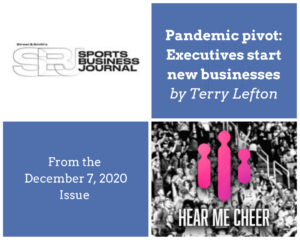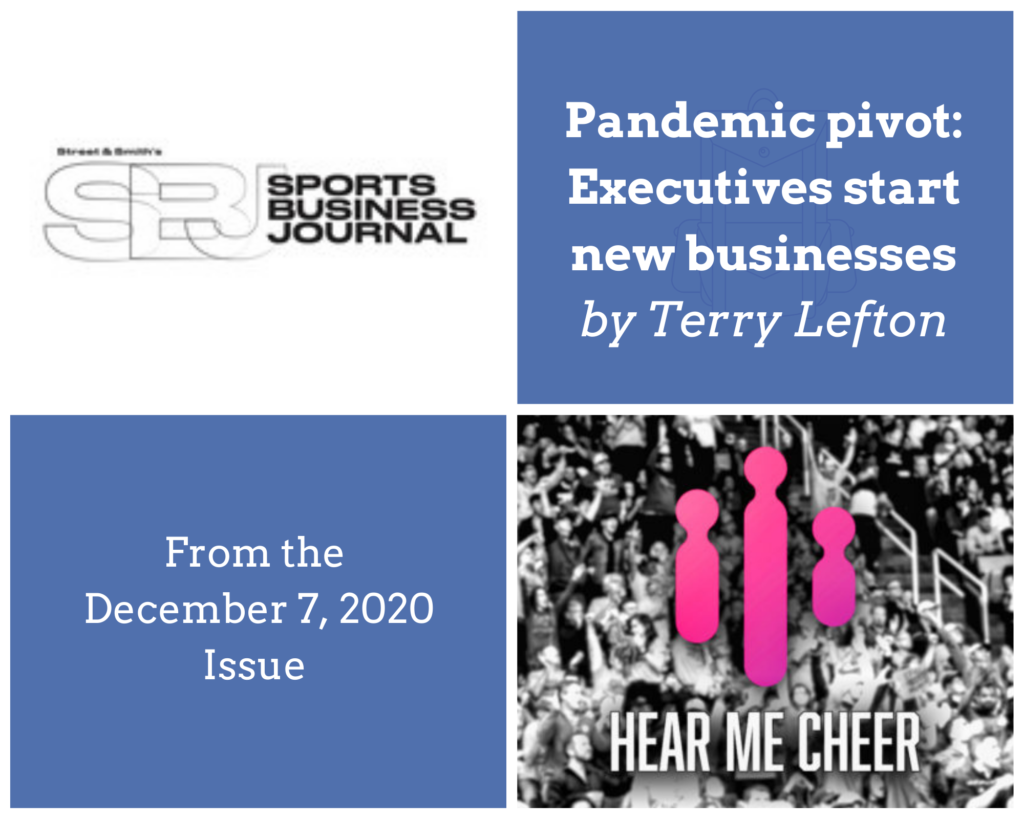
| Elias Andersen, a 20-year-old tech entrepreneur, was in Arizona pushing his ChampTrax player tracking/analytics technology to Cactus League teams when the NBA pulled the plug on its season in March. Before his four-hour return flight to Toronto landed, he’d formulated the rudiments of a business plan that was perfect during the most imperfect of times: HearMeCheer, an app that lets fans cheer during games from their cellphones, providing broadcasters and venues with authentic crowd noise for fanless games. HearMeCheer now has 14 full-time employees and the technology has been used on ESPN boxing broadcasts and a variety of college football telecasts. The app has been downloaded by fans on every continent. HearMeCheer is in the middle of raising $1 million in early-round funding. How productive has your pandemic been? Andersen, who is hoping to have deals with NBA teams, dropped out of the University of Toronto and is just two years removed from being a ski instructor. Yet he’s a paradigm for those with enough moxie to launch a business during the pandemic. Matt Farrell, formerly the CMO at USA Swimming, was stuck in a fruitless job search this summer as his tenure as the Golf Channel’s general manager of alternative golf wound down. Finally, he decided to look for clients instead. So he founded Farrell Sports Worldwide in Colorado Springs to help developing properties, assist with commercial strategies, and explore the emerging collegiate NIL market. “There is work out there,” he said. “I started with the anxiety of ‘How am I going to keep the lights on?’ I’ve moved to ‘How can I scale?’” After four years of selling media, Chris Caldwell’s time at WWE ended abruptly in February. Now he’s in the booming podcast market, with his Wavecrasher Media launching next year. “You can try repositioning yourself for the workforce or do something yourself,” he said. “It means getting used to doing things you’re not comfortable with, in order to do something that interests you.” Garrick Dorn spent 25 years selling for NBA teams and, most recently, IMG College. He launched Gainey Sports Ventures in Scottsdale, Ariz., nine days before the sports world stopped. “You have to get comfortable with being uncomfortable,” said Dorn, who originally hoped to sell naming-rights deals and NBA jersey patches but quickly pivoted to helping brands and properties figure out make-goods. “You look for gaps to fill, and the best time to find those is while the industry is in flux.” Scott Becher’s three years as vice president and head of sponsorships for Carnival Cruise Line ended in June, when the travel industry hit the pandemic ebb tide. Subsequently, he established Win-Win Partnerships as a sponsorship marketing consultancy. “Companies aren’t quickly making new commitments,” he said. “But there’s a real need for any size brand to renegotiate existing [sponsorship] portfolios. So there’s opportunity.” When the XFL folded in April, former Dallas Renegades President Grady Raskin was out of a job. However, the Hat Trick Advisors consultancy he soon founded with MVPindex co-founder Kyle Nelson has found considerable work as teams’ sponsorship deals get realigned. “COVID hurt me on one side, but it also provided me some opportunity, where there’s an absolute need,” he said. “As long as you believe that, you’ll be successful.” Former Golf Channel producer Ryan Griffiths had production/content agency Sushi Grade Media going as a side hustle before Golf Channel moved from Florida to Connecticut this year. Now it’s a full-time gig, with clients including Wilson Sporting Goods and Discovery Golf. His advice: Look at company job postings and improvise. “Get in the door as their short-term solution and grow,” he said. As social activism mushroomed this summer, so did the number of marketers wanting their new gigs to make a difference. Joe Carney spent more than 15 years selling for the likes of Viacom and The Players’ Tribune. He’s now engrossed in ZIYNX, a startup launching next year that hopes to connect athletes from high school on up with companies and vice versa. “Athletes suffer from identity foreclosure when they’re done playing and companies are looking for diversity,” he said, “but you’d better have passion and resources that will allow you to play the long game.” Former MLB and USTA communications executive Jeff Heckelman had been freelancing since his three-year stint with PR firm Finsbury ended a year ago. He officially put out his own shingle this summer with Jeff Heckelman Consulting, so he continues to mix work with the likes of ViacomCBS and the PGA Tour with nonprofit and pro bono clients. “This year has really shown me how important it is for people inside of sports to have experience outside of sports.” And it’s obviously a time when experience is taking a back seat to ingenuity. “I’ve learned there’s no ideal time to start a business,’’ said HearMeCheer’s Andersen. “Good ideas are more important than good timing.” © 2020 Leaders Group. All rights reserved. |
